Picture this: you’re sitting down to tackle a daunting study session, armed with textbooks, notes, and a steaming cup of coffee. But wait, what’s missing? Ah, yes! The perfect playlist to accompany you on this academic journey. Well, let me make this more interesting. Do you know the scientifically best music for studying?
Believe it or not, the right music can do wonders for your focus, motivation, and overall productivity. In this article, we’ll delve into the fascinating world of music and its impact on studying.
Prepare to discover the scientifically best music for studying, as well as some surprising insights into how it affects your brain and boosts your cognitive abilities. Let’s find out more about the best music to listen to while studying.
Related: 5 Ways Listening To Music Affects Mood
The Role Of Music While Studying
- Creating a Distraction-Free Environment: Music acts as a buffer against external distractions by providing a consistent and pleasant auditory experience. It helps drown out background noise and prevents sudden interruptions from disrupting your concentration.
- Stimulating Brain Engagement: The right music can activate different areas of the brain associated with attention, memory, and cognitive processing. It helps stimulate neural pathways, keeping your mind engaged and focused on the task at hand.
- Enhancing Mood and Motivation: Music has a profound impact on our emotions. By listening to uplifting and energizing tunes, we can improve our mood, boost motivation, and develop a positive mindset towards studying. This emotional boost can significantly increase our ability to concentrate and retain information.
- Establishing Rhythmic Patterns: Many types of music, such as ambient or instrumental tracks, have steady rhythms and repetitive patterns. These rhythmic elements create a sense of structure and predictability, which can help regulate brain waves and induce a state of focused relaxation.
- Triggering Personal Associations: Music has a unique ability to evoke memories and emotions tied to specific experiences. By creating positive associations with studying, such as listening to the same genre or artist during successful study sessions, you can train your brain to automatically enter a focused state when you hear that particular music. This association can become a powerful cue for your brain to shift into a study mode.
Read on to explore the best music to listen to while studying.
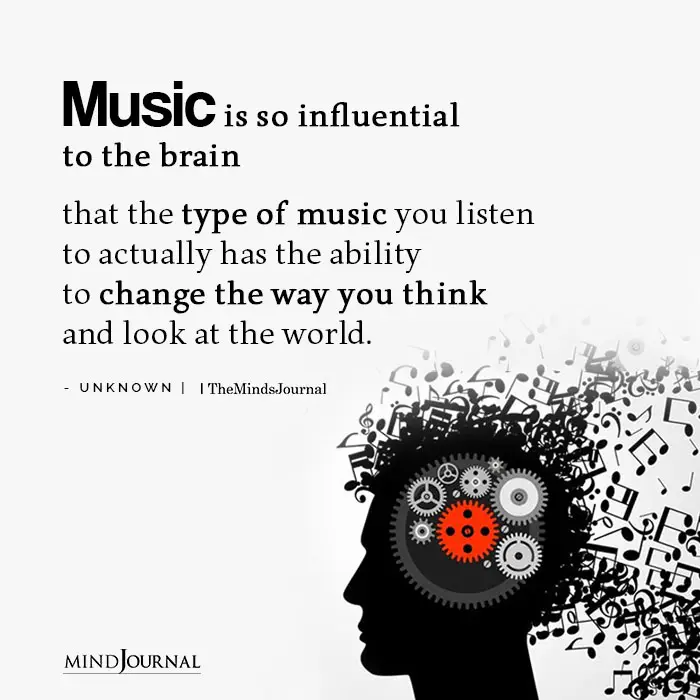
The Scientifically Best Music For Studying: 6 Best Music Genres
1. Classical music
One of the best music to listen to while studying is classical music, without a doubt.
You may have heard of the famous “Mozart Effect,” which claims that listening to classical tunes can boost your smarts. Actually, it’s true. Unlike other genres, classical music often doesn’t have distracting lyrics, making it perfect for study sessions. Plus, those symphonies, sonatas, and operas are like a musical adventure for your brain.
The structured harmonies and complex compositions in classical music can actually enhance your cognitive functioning and help you concentrate better.
Whether it’s the soothing melodies of Mozart or the grand compositions of Beethoven, these timeless pieces provide a backdrop that keeps your mind engaged and in the zone.
2. Binaural beats
Looking for scientifically best music for studying? Look no further than binaural beats.
Binaural beats tap into the amazing power of your brain to fill in sensory gaps. All you need is a pair of headphones to experience the wonder. These beats emit slightly different frequencies into each ear. Your brain, being the awesome problem solver it is, detects this difference and creates its very own frequency from it.
The result? A symphony of brainwaves that lulls you into a state of deep focus and concentration. It’s like your brain gets supercharged and ready to absorb knowledge like a sponge.
Time seems to just zip by when you plug into these beats. Hours feel like minutes, and you’ll find yourself in the study groove without even realizing it.
Related: Music Therapy: How Binaural Beats Music Can Help Reduce Depression
3. Ambient electronica
Ambient electronica, is where tranquillity meets technology. Imagine floating through a cosmic soundscape, with gentle electronic tones merging seamlessly with nature’s soothing melodies. It’s like stepping into a musical oasis that takes your mind on a blissful journey.
What’s so cool about ambient electronica is its minimalistic vibe. It stays in the background, creating a serene atmosphere that won’t steal the spotlight from your study session. It’s like having a personal zen master guiding you through the realm of deep concentration.
When you’re diving into subjects that require your utmost focus, ambient electronica becomes your trusty companion, and is one of the best kinds of music to help with concentration.
It sets the mood and creates an almost meditative state, allowing your thoughts to flow freely and your mind to stay centred.
4. Sounds of nature
Wondering what is the scientifically best music for studying? Nature sounds is one of your best bets.
There’s something inherently relaxing about nature sounds, and it’s not just in our heads. When you tune into these sounds, your brain gets a break from the hustle and bustle of urban noise and the often-overwhelming digital world.
These natural symphonies can help reduce stress hormones, making it easier for you to focus. Without jarring interruptions or catchy lyrics to side track you, nature provides an ambient backdrop that’s just right. It’s like your brain gets to take a mini-vacation, promoting a sense of calm and clarity.
So, the next time you’re hitting the books or diving into a project, consider swapping out those pop beats for a gentle brook or rustling leaves.
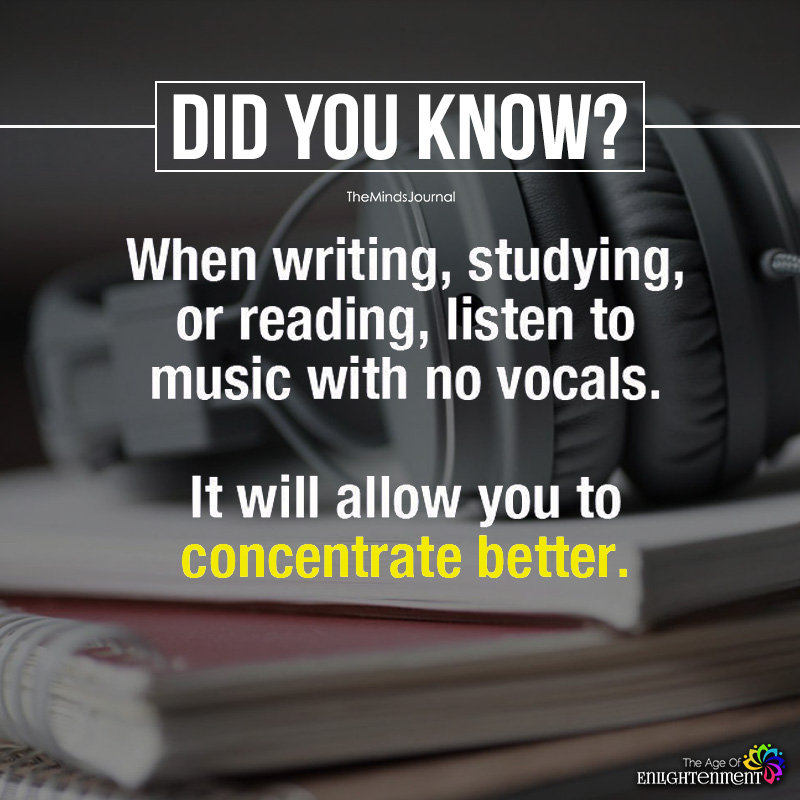
5. Meditation music
Have you ever felt that mid-study brain fog and thought, “I need a breather!”? Enter meditation music. This isn’t just for those cross-legged, deep-breathing moments. Meditation music, with its slow tempos and ethereal tones, can be a game changer for study sessions.
Think of it as a gentle mental massage for your busy brain. This kind of music is designed to soothe, not distract. So, while you’re tackling algebra or dissecting Shakespeare, it subtly runs in the background, calming any background anxiety or stress.
No jarring beats or sing-along lyrics to divert you. Instead, you get a serene backdrop that might just help you retain info better. So, if your study playlist needs a refresh, or if you’re just curious, give meditation music a whirl.
Related: 5 Cognitive Benefits Of Music Training
6. Instrumental music
One of the best kinds of music to help with concentration.
Instrumental music don’t need lyrics to work their magic. These masterpieces are carefully crafted to tug at your heartstrings, ignite your imagination, and take you on a sonic adventure.
Imagine studying while being enveloped in epic soundscapes that make you feel invincible, like you could conquer anything that comes your way. Those soaring melodies and powerful orchestral swells are the ultimate motivation boosters, fuelling your determination and inspiring you to reach new heights.
When it’s time to find your calm amidst the storm of deadlines, softer instrumental compositions come to the rescue. They gently wash over you, soothing nerves and creating a tranquil oasis. With these melodies as your companions, you can find your focus and dive deep into your studies, undisturbed by distractions.
Takeaway
When choosing the best music for studying, it’s essential to consider individual preferences and the nature of the task at hand. While these are scientifically best music for studying, personal experience will always play a significant role in finding the best fit.
What is the best music to listen to while studying, according to you? Let us know your thoughts in the comments down below!
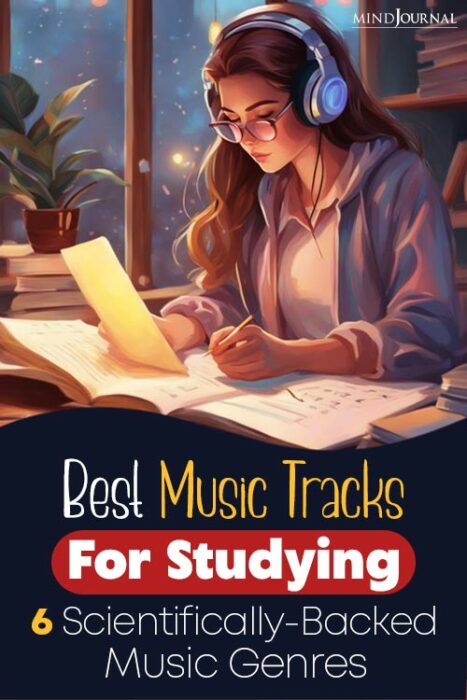
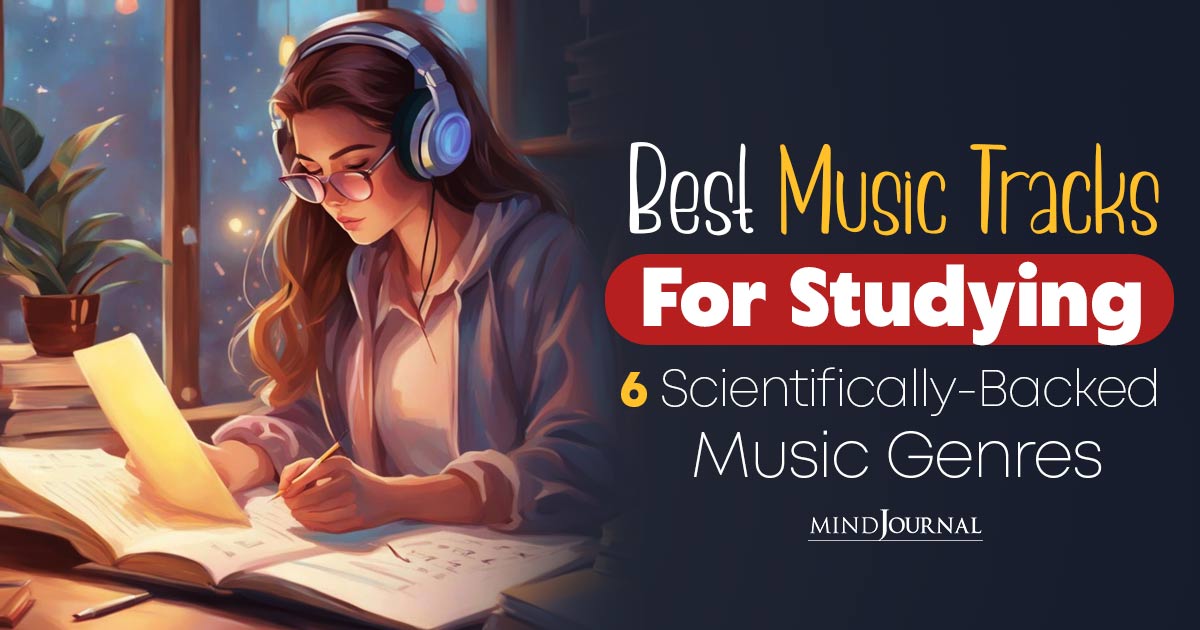


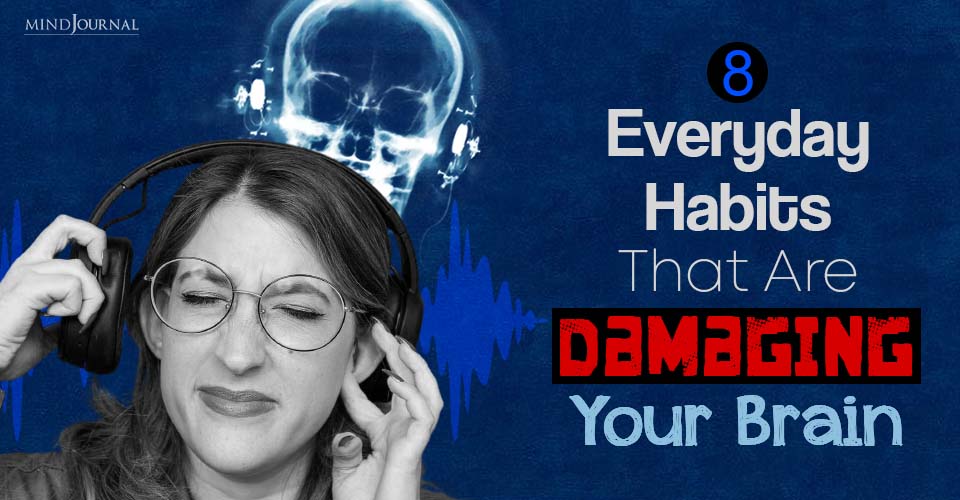




Leave a Reply
You must be logged in to post a comment.